Truckers, Factory Worker At Forefront Of Strikes In Iran
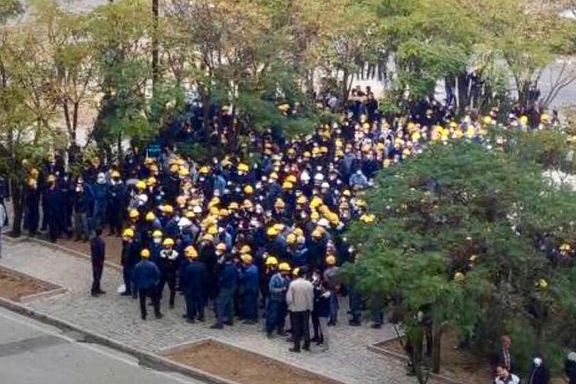
Reports from Iran say Truck Drivers’ Union has called for a nationwide strike while workers at steel and automobile factories have also stopped work on Saturday.

Reports from Iran say Truck Drivers’ Union has called for a nationwide strike while workers at steel and automobile factories have also stopped work on Saturday.
The workers of Esfahan Steel Company, Alvand SarmaAfarin Incorporation, Morattab Car Manufacturing, Safe Khodro Car Manufacturing Company, Qazvin’s Pars Appliances Company, and some others staged strikes during the day.
Esfahan Steel Company is a parent corporation with four thousand employees and a producer of construction steel and rails.
SarmaAfarin is a company in the air conditioning industry that was established half a century ago.
The Union of Truck-Owners and Truck Drivers has also published a general call for a 10-day strike starting November 26.
Reports by the Free Workers' Union say welding workers also went on strike at Bafaq Steel Complex in Kerman province in central Iran in protest to non-observance of safety measures that led to an explosion and the death of two of their colleagues.
In recent weeks workers at dozens of industrial units, including automobile manufacturing, household appliances, heavy industries, petrochemicals, oil, gas, sugarcane, etc., went on strike.
Shopkeepers and business owner in dozens of Iranian cities also closed their shops and went on strike many times for consecutive days in support of the uprising against the clerical regime.
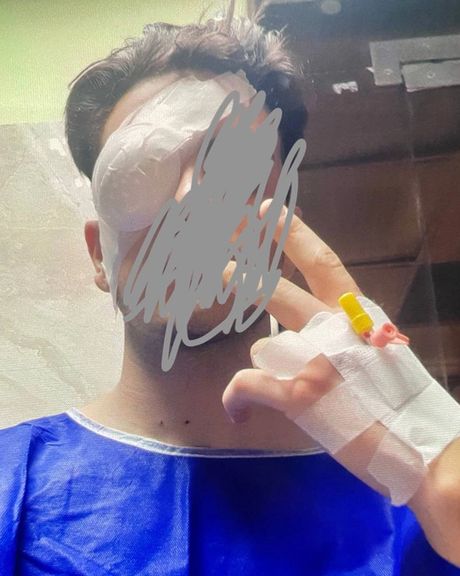
Dozens of ophthalmologists have warned against the use of shotgun ‘birdshots’ and other projectiles by Iran’s security forces that have blinded over 500 protesters since mid-September.
In a letter issued on Friday, a group of about 140 ophthalmologists said that a large number of protesters have been taken to medical centers hit by rubber bullets and metal pellets as well as paintball bullets in their eyes, leading to the loss of eyesight in one or both eyes.
Last week, another group of 230 ophthalmologists issued a similar letter warning about the loss of eyesight among protesters.
The Islamic Republic, which had been previously condemned for blinding protesters in the streets and has intensified the use of guns, including military weapons against unarmed protesters.

In an article on November 19, The New York Times cited ophthalmologists of three hospitals in the capital Tehran – namely Farabi, Rasoul Akram and Labbafinezhad -- and several doctors in Kordestan province, as saying that about 580 protesters suffered serious eye injuries during the regime’s crackdown.
The full scope of mass eye injuries has been largely concealed due to the internet blackout, but medical evidence given to The Times by doctors, protesters, family members of patients and rights groups revealed that ophthalmology wards in hospitals have been overwhelmed with eye injury victims. The range of injuries included mutilated retinas, severed optic nerves and punctured irises.
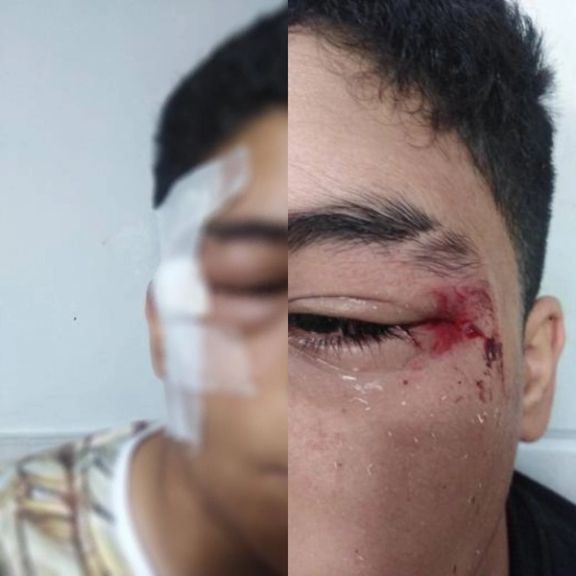
The regime’s security forces have been extensively using cartridges of shotshell loaded with numerous small balls or birdshots, or medium-sized buckshots as well as single large solid projectiles known as a slug to quash the protests across the country.
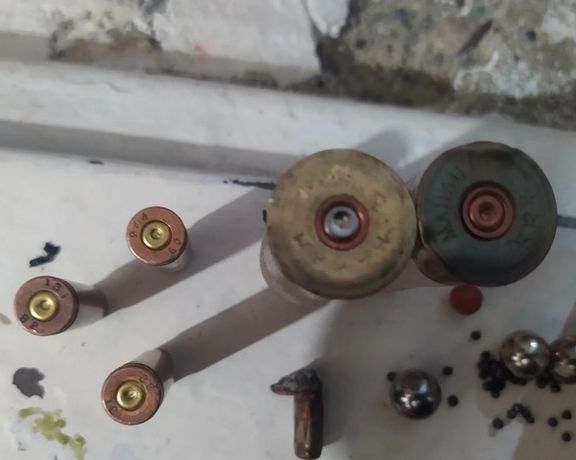
In an investigative report published on Friday, FRANCE 24 found evidence that shotgun cartridges manufactured by French-Italian manufacturer Cheddite have been widely used against Iranian protesters, an apparent violation of EU sanctions that went into place in 2012.
The team analyzed more than 100 photos and videos showing teargas canisters, rifle bullets, paintball projectiles and cartridges from shotguns. While most of the shotgun shells photographed were made in Iran, 13 shells recovered from eight different Iranian cities bore Cheddite logos from factories in Italy and France. The company claims to be the world’s largest maker of empty shotgun cartridges and firing caps, producing more than a billion empty cartridges every year.
Nicholas Marsh, a senior researcher at the Peace Research Institute Oslo (PRIO), told FRANCE 24 about Iran that "The regulation currently in force states that it is not allowed to sell shotguns of any type, ammunition designed for them and associated components. The restriction on firearms was added in an amendment on 24 March 2012. Since then, shotguns and their ammunition have been covered by the EU sanctions, and the sanctions are still in effect." The agency also quoted Amnesty International's researcher on arms control and human rights, Patrick Wilcken, as saying that “Cheddite has a responsibility to respect human rights; it should carry out human rights due diligence on its entire value chain and should cease supplies if there is a risk of goods being diverted into hands of serial human rights violators…”
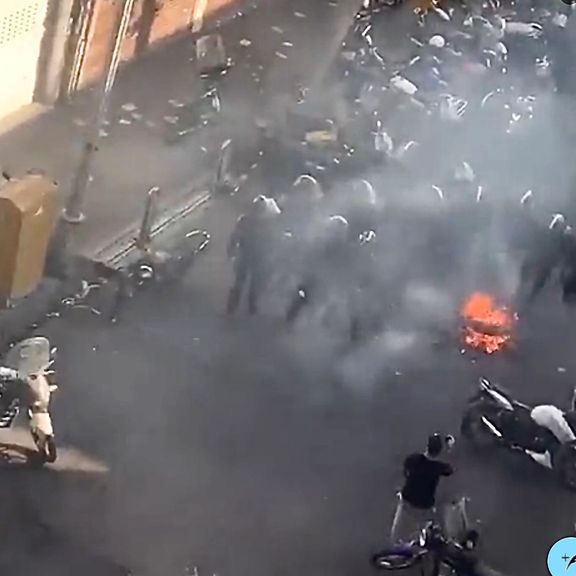
Canada’s Ministry of Foreign Affairs has strongly condemned the detention of demonstrators and the violent suppression of civilians in Iran.
In response to Iran International, a spokesperson for Canada’s Global Affairs Department categorically condemned Iran’s arrest of protestors and the continuing violent crackdown on people, which has caused additional deaths and injuries in blatant violation of their human rights.
“We urge Iran to meaningfully address the grievances of all of its citizens without discrimination and to protect and respect their right to peaceful protest,” said the spokesperson.
“We salute the courage of all Iranians, especially women and girls, who are exercising their right to freedom of expression and freedom of peaceful assembly and association. We join them in sending the regime a very clear message: they must end all forms of persecution and violence against women.”
On the other hand, Canada's ministers of foreign affairs, international development and the minister responsible for the Pacific Economic Development Agency of Canada, wrote in a joint statement that Ottawa will continue to stand firmly with the Iranian people and for the human right of women, girls and gender-diverse people.
“Right now, women in Iran are leading a powerful and necessary call to end violence against women and girls. The killing of Mahsa Amini while in the custody of the so-called morality police has sparked a courageous, global movement to stand up for a more fair and inclusive future for women and girls in Iran,” reads the statement.
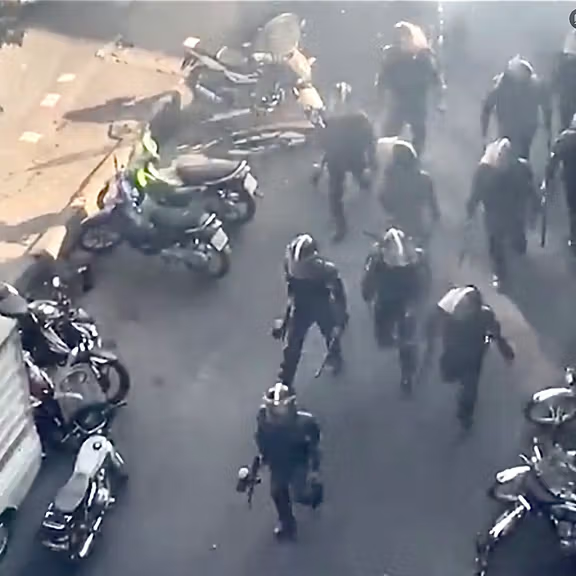
Iranian human rights activists monitoring the situation say the number of people killed in nationwide protests has risen to at least 448 as of Friday, November 25.
The US-based Human Rights Activists News Agency (HRANA) announced in its latest report that from September 16 until Friday, November 25, at least 448 protestors have been killed, of which 63 were minors.
While the Islamic Republic has not provided accurate figures of those detained in the protests, the watchdog went on to say that at least 18,170 protesters have been arrested including 565 students.
HRANA added that156 cities and more than 140 universities across Iran have also been the scenes of anti-government protests.
The group added that 3,234 of the arrested protesters have been identified, saying that 110 are minors.
Meanwhile, “Kurdistan Human Rights Network”, which is a France-based independent organization said at least 104 Kurdish citizens were killed in nationwide protests until Friday, November 25.
The United Nations Human Rights Council on Thursday adopted a resolution based on which an international panel will be formed to investigate the violence against protesters in Iran.
The members of the fact-finding panel will be appointed by the President of the United Nations Human Rights Council, and its mission is to investigate human rights violations since the beginning of Iran's nationwide protests and document the role of its perpetrators.
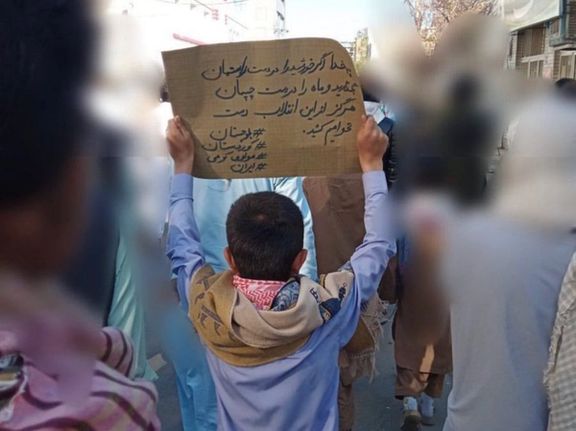
Friday, 26 November, will remain in the history of Iran forever as some security forces were killing people in Kurdish and Baluch cities but were dancing before cameras in Tehran.
Following a tough Friday prayer sermon by Iran’s leading Sunni cleric, people in the southeastern province of Sistan and Baluchestan poured onto streets in several cities in support of the people in Kurdish-majority cities in western Iran. Protesters in provincial capital Zahedan, Chabahar, Khash, Saravan, and Iranshahr were out in streets until late in the night, chanting slogans for freedom and the end of the clerical regime. A noteworthy slogan was “Kurds and Baluchis are brethren, all thirsty for the blood of the leader.”
In many cities they were confronted by the security forces who used gunfire and teargas, killing several people. But in the capital Tehran, security forces apparently were ordered to celebrate for the victory of Islamic Republic’s football team in its second World Cup match, creating a surreal scene that is bound to remain in the history of the country.
Defying the resentment of many Iranians over government’s killing of 400 people, including about 50 children, in the past two months, the players of the national squad sang along with the Islamic Republic anthem at the beginning of their match against Wales and won the game to keep their hopes alive for qualifying to the knockout stage of the tournament. But people on social media have been slamming them for their disregard toward the bloodshed in Iran. Protesting Iranians also chanted slogans in support of popular footballer Vorya Ghafouri, who was arrested for his outspoken support for protesters.
Late on Friday, people in several neighborhoods of the capital Tehran, the neighboring city of Karaj and the central city of Esfahan held antigovernment gatherings and chanted slogans against the regime.
One of the highlights of the day for Iranians was the hacking of Fars news website, a media outlet affiliated with Iran’s Revolutionary Guard, which promotes the Islamic Republic’s agenda in several languages. The website of Fars News Agency was targeted by Iranian hacktivist group Black Reward and the agency’s databases which include confidential news bulletins sent to Supreme Leader's office and IRGC as well as all their recorded calls, correspondence, and financial data were breached.
Moreover, the commander of IRGC ground forces announced Friday that it has been reinforcing its military on the border with Iraq adjacent to the Kurdistan autonomous region with armored units.
Iran has deployed military firepower against Iranian Kurdish civilian protesters in western Iran, killing at least 12 people since November 16. It has also repeatedly shelled bases of Iranian Kurdish insurgent groups in Iraq, portraying the popular protests as a separatist movement. Mohammad Esmail Kowsari, a former IRGC commander and currently a member of the Islamic Republic parliament, also confirmed that military units were being dispatched to deal with Kurdish insurgents in Iraq.

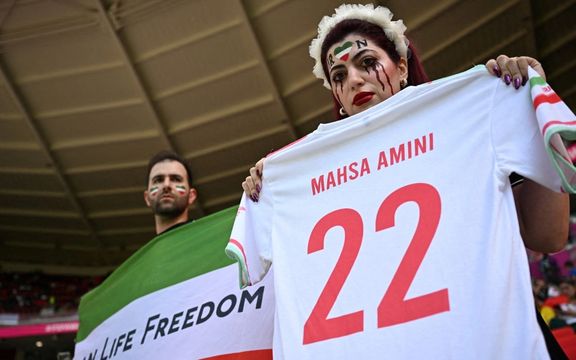
Iran’s soccer team blanked 10-man Wales Friday as World Cup host Qatar prevented Iranian fans from expressing their support for the ongoing protests in their the country.
Iranian fans, who wanted to take flags other than the official one approved by the Islamic Republic to the Al Rayyan’s Ahmad bin Ali Stadium, were stopped by security officers. Many people were barred from carrying or waving Iran’s ancient flag with the Lion and Sun emblem or a simple three-color flag with the main motto of the current wave of protests – Woman, Life, Liberty.
Rebuking the Qatari police for such a close collaboration with the Islamic Republic, Iran International presenter Reza Mohaddes said that organizers of the event have even set up patrols during to match to stop and expel those who have managed to sneak in some flags or other symbols in solidarity with the protests back home.
He quoted officials of the Islamic Republic’s Football Federation as saying that in addition to the country’s officials and state media reporters, more than 22,000 free tickets -- about 7,000 per match --have been provided for the country’s cherrypicked supporters to go to Qatar from Iran. Masquerading as “cultural agents,” these people are mainly in charge of populating the stadiums carrying the regime’s flags or symbols.
Moreover, there are videos and photos of Bangladeshi and Pakistani citizens – reportedly workers who helped built Qatar’s stadiums under inhumane working conditions – paid to pose as Iranian football fans, carrying the Islamic Republic’s flags.
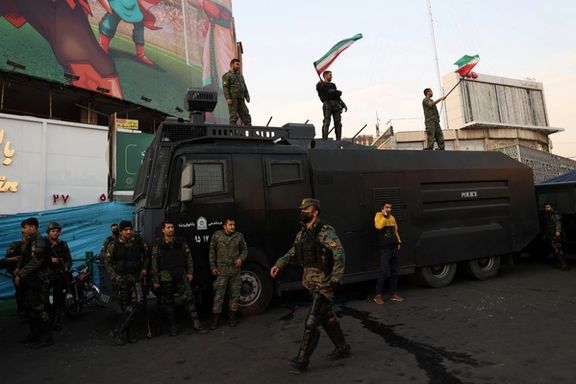
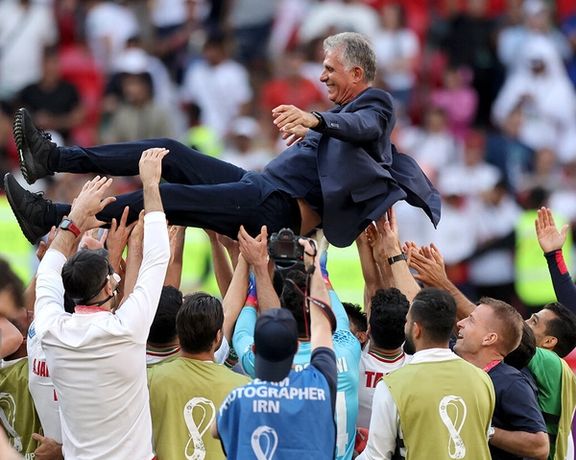
Another thing that has irked Iranians in the country and abroad is how the players cheered after their 2-0 victory against Wales, while almost none of the footballers playing at the country’s premier league cheer after scoring or winning in honor of the bereaved families of the protesters killed in the past 70 days.
Last month, Iranian President Ebrahim Raisi expressed concern over possible problems that may happen during the FIFA World Cup, tacitly referring to people chanting slogans against the Islamic Republic during matches or players making statements about the situations in Iran. Earlier in November, he tasked the Foreign Ministry to contact Qatari officials regarding the issue to find ways “to predict and prevent possible problems."
Mohaddes added that Qatar is also cooperating with the Islamic Republic to better censor the broadcast of the matches. The Islamic Republic state broadcaster has always been censoring scenes from the spectators who were carrying placards or flags to show their opposition to the regime. The censorship also meant to block images of normally dressed women among spectators in matches that took place outside Iran.
However, it had to find innovative measures to keep airing the live matches, such as finding an insert shot that it deemed appropriate and replaying it whenever it wanted to censor the footage. But this time Qatar solved this problem for the Islamic Republic by providing a live clean long shot of the stadium to be used instead of close-up shots of flags or an expression of solidarity with the uprising.
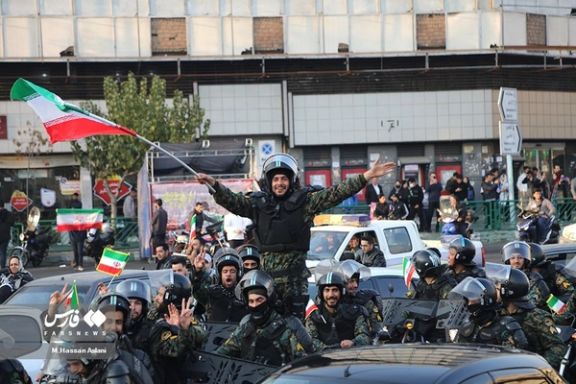
Unlike their first match, this time the Iranian squad disregarded people’s feelings by singing along with the Islamic Republic anthem. Loud jeers were heard from Iranian supporters inside the stadium as the anthem played, with the team singing quietly along.
Numerous Iranian athletes have shown support for the protests. The Iranian football, beach football, water polo, basketball, and sitting volleyball teams refused to sing along with the anthem, which is customary in almost all international competitions. Authorities have made serious threats against athletes and other celebrities to stop them from public displays of solidarity with protesters but to no avail.
According to Mohaddes, Iranians expected Team Melli to do something more than staying silent during the anthem, especially after the arrest of popular footballer Vorya Ghafouri for his outspoken support for protesters, but players even did not repeat the banal gesture they did in their World Cup opener.
Team Melli players even disappointed people by refusing to talk about or even answer questions about the current situation in Iran on the eve of their match against Wales, claiming that they are not people of politics.
Team Melli should rather be called “the representatives of the Islamic Republic” as they can no longer be Iran’s national squad, Mohaddes noted.